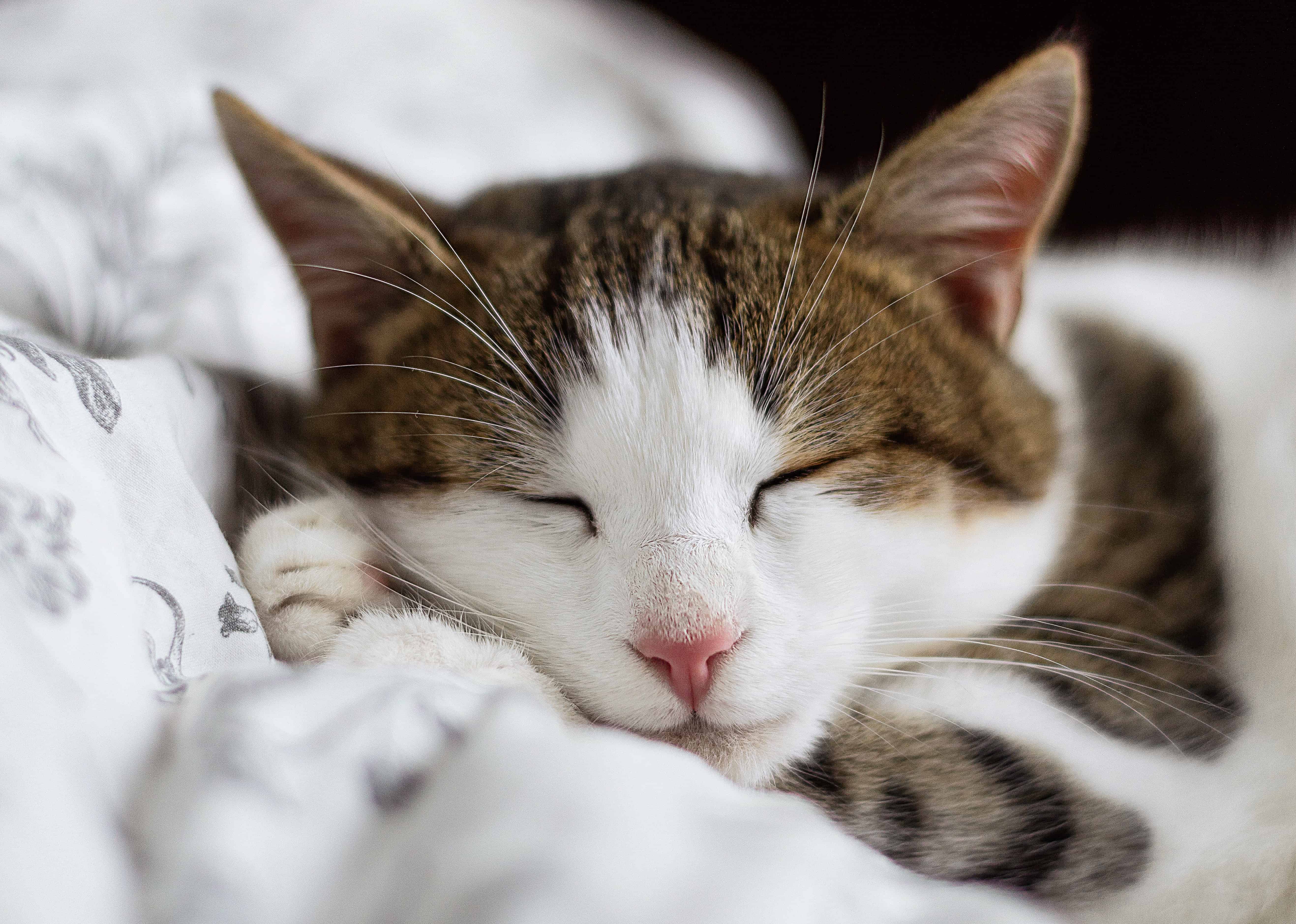At Weddington Animal hospital, we love helping our cat owners form strong bonds with their cats. Cats are naturally curious creatures and are very beloved by pet owners. In fact, more pet owners in the US own cats than dogs. To their owners, a cat’s normal daily routine may seem puzzling or even erratic at times. While most behaviors are quirky or endearing, it is important for cat owners to know their pets and understand which behaviors may be warning signs of stress or underlying health issues. This article will discuss 5 common stress behaviors seen in kitties that are not feeling their best and how to approach them.
How can I tell if my cat is stressed?
A stressed cat shows stressed body language. Dilated pupils, a crouched position, ears flat back against their head, raised hair, vocalizations (deep meows, hissing or growling) and a swishing tail are all indications that your cat is not comfortable in its current situation.
Hiding
Cats are natural loners that thrive with routine. Cats need time to process their environment before they feel comfortable. This is why cats love hiding places that are elevated or enclosed – they feel more safe. For most cats, even the most subtle change in their environment, when detected, can cause stress. New people, changes in food, litter type, furniture changes, the addition of a pet or family member can all be common stressors. If you notice your cat is watching from afar instead of the center of attention, this may be a flag that he is stressed or not feeling his best.
Fighting
Have you ever tried to pet or pick up a cat that does not want your attention? Most cat owners have experienced that sassy look, hiss or growl in an unsolicited moment. Some cats are even prone to swat, scratch or bite if provoked or if they are uncomfortable with their environment. If your cat is showing signs of irritation, these may be a sign they are stressed or uncomfortable in the current setting.
Sneezing
Sneezing or upper respiratory signs in cats can be a sign of stress or illness. Stress in cats can activate symptoms of a viral infection called feline herpes virus, which is very common in cats and highly contagious. This virus can weaken the immune system, leading to upper respiratory symptoms such as a dry sneeze and occasional ocular discharge or squinting. The virus can also make cats prone to secondary infections, which may be severe. It is important to contact your veterinarian if you notice your cat is experiencing sneezing or other signs of illness to determine the cause and the best plan for your cat to feel better.
Excessive grooming or changes in appearance
Have you ever startled your cat and seen their hair rise on their back? A stressed cat may “raise its hackles,” a process called “piloerection.” This is a sign of stress, discomfort, fear or illness. Cats in stressful environments may also exhibit overgrooming behavior as a coping mechanism, which sometimes results in hair loss. These symptoms can also be caused by other illnesses. If you notice any changes in your cat’s hair coat or quality, it is important to contact your veterinarian.
Changes in litter box habits
A stressed cat may exhibit changes in their urination or defecation habits. Loose stool or diarrhea can be a symptom of stress or a variety of illnesses. Occasionally, cats will urinate or defecate outside the litter box or in inappropriate locations if they are stressed, painful, or sick. It is never normal for a cat to have diarrhea, urinate or defecate outside of their box. Vocalization while in the litter box, frequent trips, or straining to urinate or defecate is never normal and can be a sign of a serious medical emergency. If you see your cat exhibiting any of these behaviors, please contact your veterinarian immediately.
How can we prevent stress?
It is important to allow your cat space and comfort in their daily life. Ensuring they have adequate food, a clean litter box, and free access to water is crucial. If you find a litter type, litter box and food that your cat likes, we do not recommend switching them unless directed by a veterinarian. Feliway spray, collars and diffusers are synthetic pheromone products that can help stimulate sensations of calm and bring back memories of kittenhood. Be cognizant of any changes in your environment that may be upsetting your cat. Simple things such as loud noises, visualizing other cats or dogs, or people coming and going may be triggers. If you have any concerns about your cat, your veterinarian is your best resource.

